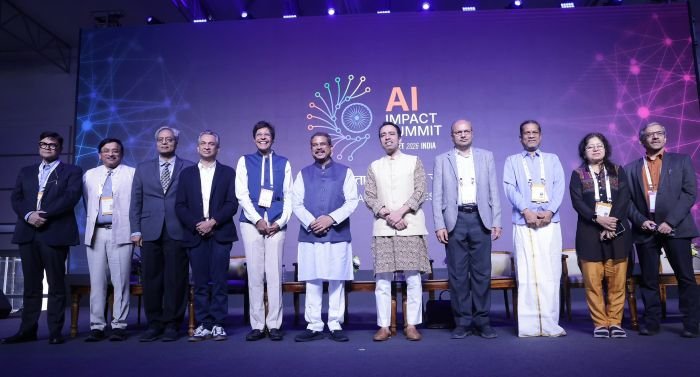
By Amit Andre, CEO, The Data Tech Lab Inc.
 GARTNER’S STUDY predicted that, by 2021, 80% of new technologies will be AI-based, while IDC predicts that by 2021, 75% of commercial applications will have an AI component. Even in the post-pandemic era, data science and analytics are still a top priority for 45 per cent of businesses. He affirms that data is the foundation of AI and associated technologies like machine learning (ML), virtual reality (VR), and augmented reality (AR).
GARTNER’S STUDY predicted that, by 2021, 80% of new technologies will be AI-based, while IDC predicts that by 2021, 75% of commercial applications will have an AI component. Even in the post-pandemic era, data science and analytics are still a top priority for 45 per cent of businesses. He affirms that data is the foundation of AI and associated technologies like machine learning (ML), virtual reality (VR), and augmented reality (AR).
There is significant job growth in both industries. Over the last five years, the hiring of data scientists and engineers has increased by 35%, and these jobs have ranked first on LinkedIn’s emerging job listings for three years. AI hiring has grown by 74% during the last four years.
For emerging applications, it has been noticed that practically every industry such as ECommerce, HealthTech, Education, Technology, Manufacturing, Energy, Finance, etcneeds data science and AI ability. This has given rise to plenty of other new jobs and some promising careers in data science and AI, including:
Data Scientist : Data scientists aid in the collection of relevant data from a variety of sources, as well as the evaluation of that data to draw useful conclusions, that can be used to address a variety of business difficulties. Data scientists generate numerous forecasts based on various data patterns, as well as historical and current data.
Business Intelligence Developer : A Business Intelligence Developer’s major task is to combine business knowledge with artificial intelligence. By analyzing large data sets, they can spot various business trends.
Big Data Engineer : A Big Data Engineer’s job is to build a solution that allows business systems to communicate effectively. Their main responsibility is to create and manage an organization’s big data successfully.
Machine Learning Engineer: Machine learning engineers are responsible for developing and maintaining self-running software that aids in the implementation of machine learning efforts.
A Machine Learning Engineer would start by learning programming languages like Python, R, C++, and Octave, as well as mathematics like calculus and linear algebra, as well as data modelling.
Research Scientist: Research scientists work hard to do substantial research on machine learning and artificial intelligence applications and the one who has studied applied mathematics, statistics, deep learning, and machine learning.A PhD or advanced master’s degree in mathematics or computer science is required of applicants.
AI Data Analyst: Data mining, data cleansing, and data interpretation are the primary responsibilities of an AI data analyst. The necessary data for data interpretation is gathered by cleaning data. They delete any unnecessary data to ensure that the data interpretation process is not hampered.
A bachelor’s degree in mathematics or computer science is required to work as an AI data analyst.
Product Manager: A product manager’s job in the realm of AI is to tackle difficult challenges by systematically collecting data. You should be capable of detecting pertinent issues that inhibit business operations. To make data interpretation easier, the next step is to obtain similar data sets.
AI Engineer: AI engineers are the oneswho create, test, and implement various AI models and are called problem solvers in the industry. To construct viable AI models, they use machine learning techniques and a thorough understanding of neural networks.
Programming skills in languages like Python, R, or C++ are expected. Applicants should have a thorough understanding of statistics, natural language processing, applied mathematics, and analytics.
Robotics Scientist: Because of the advent of robotics in the field of AI, large industries will seek robotics scientists to programme their devices, job opportunities will grow. A master’s degree in robotics, computer science, or engineering is essential.
BI Developer, Businessanalyst, Dataarchitect, AI architect, Computer vision engineer, Full-stack engineer, Neural network developer, Cloud engineer etc are several other jobs available.
Now the question is how to plan for your education that will bring you to your ideal employment! Your educational path should correspond to the career path you seek.
One way to map out is to understand which jobs most interest you to the skill sets necessary by each of those jobs. Then assess your talents and interests: which skills do you have the greatest experience in, and which ones do you wish to learn the most?
Find the educational opportunities that will assist you in developing those skills. Consider the type and amount of education required for these jobs: do you need a college diploma, an advanced degree, or perhaps a doctorate?
Will you be able to demonstrate the essential skills and training by using certification programmes?
It is crucial to choose a solid starting point for setting the foundation for a career in data science and AI. A strong understanding of mathematics, statistics, and programming is required for both data science and AI. You can choose to branch off in any way once that foundation is in place.
Additionally speaking of, with emerging new technologies Metaverse is one such hot topic of discussion these days. The term “metaverse” refers to a shared virtual world that may be accessed via the internet.
Many possibilities will arise as Metaverse develops. Many commercial uses are expected in the metaverse, including eCommerce, sales and marketing, decentralized finance, crypto companies, and so on.Developers, entrepreneurs, and inventors will have more opportunities because of this.
NVIDIA, Facebook, Epic Games, and Roblox Corporation are among the global digital behemoths credited with inventing this new virtual universe. Facebook acquired Oculus VR to construct virtual meeting places, while NVIDIA is going big with its Omniverse, a metaverse for engineers.
In conclusion, it would not be wrong to state that, despite the widespread belief that artificial intelligence (AI) would replace superfluous employment roles with automation and smart technologies, we are still far from the point where robots will take over our daily lives. So, if you’re looking for a job in AI, keep in mind that there are plenty of options.








